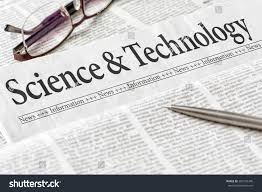AI and Data Science: Transforming the Modern World
Artificial Intelligence (AI) and Data Science are two of the most transformative technologies in today’s world. They are driving innovation across industries, reshaping how businesses operate, and influencing everyday life in profound ways. This article explores the synergy between AI and Data Science, their applications, and their impact on various sectors.
The Intersection of AI and Data Science
AI refers to the simulation of human intelligence processes by machines, especially computer systems. These processes include learning, reasoning, problem-solving, perception, and language understanding. On the other hand, Data Science involves extracting insights from structured and unstructured data through scientific methods, processes, algorithms, and systems.
The intersection of AI and Data Science lies in their shared goal of deriving meaningful insights from data. AI techniques such as machine learning are employed in data science to build predictive models that can analyse patterns within large datasets. This collaboration enables more accurate predictions and smarter decision-making.
Applications Across Industries
Healthcare: In healthcare, AI and Data Science are used for predictive analytics to forecast disease outbreaks and personalise patient care. Machine learning algorithms can analyse medical records to identify trends that help in early diagnosis.
Finance: The finance industry leverages AI for risk management, fraud detection, algorithmic trading, and personalised banking services. Predictive models assist in assessing credit risks more accurately.
Retail: Retailers use AI-driven analytics to enhance customer experience through personalised recommendations. Inventory management is optimised using predictive analytics to forecast demand trends.
Transportation: Self-driving cars are a prime example of AI applications in transportation. Additionally, data science helps optimise routes for logistics companies by analysing traffic patterns.
The Impact on Society
The integration of AI and Data Science has a significant impact on society by improving efficiency across various sectors while also raising ethical considerations such as privacy concerns. As these technologies continue to evolve rapidly, it is crucial for policymakers to establish frameworks that ensure ethical use while fostering innovation.
The Future Outlook
The future of AI and Data Science looks promising with advancements expected in areas like natural language processing (NLP), computer vision, autonomous systems among others. As more organisations adopt these technologies into their operations strategically; they will unlock new possibilities leading towards smarter societies globally.
In conclusion; Artificial Intelligence combined with Data Science presents immense potential not only transforming industries but also enhancing quality-of-life aspects worldwide when harnessed responsibly ensuring sustainable growth moving forward into an exciting future ahead!
Essential Tips for Mastering AI and Data Science: Building Skills and Gaining Practical Experience
- Understand the basics of statistics and mathematics to build a strong foundation for AI and data science.
- Stay updated with the latest trends and technologies in AI and data science through online courses, webinars, and research papers.
- Practice coding regularly in languages like Python, R, or SQL to enhance your programming skills for data analysis.
- Explore various machine learning algorithms such as regression, classification, clustering, and deep learning to understand their applications.
- Work on real-world projects or participate in Kaggle competitions to gain practical experience and build a strong portfolio.
- Collaborate with peers in the AI and data science community to share knowledge, insights, and best practices.
- Develop critical thinking skills to analyse complex datasets and derive meaningful insights from them.
- Focus on data preprocessing techniques such as cleaning, transformation, and feature engineering to improve model performance.
- Communicate results effectively by visualising data using tools like Matplotlib, Seaborn or Tableau.
Understand the basics of statistics and mathematics to build a strong foundation for AI and data science.
Understanding the basics of statistics and mathematics is crucial for building a strong foundation in AI and data science. These disciplines rely heavily on mathematical concepts to develop algorithms that can analyse and interpret complex datasets. Statistics, in particular, provides the tools necessary for making sense of data variability and uncertainty, enabling practitioners to draw meaningful conclusions from their analyses. A solid grasp of mathematical principles such as calculus, linear algebra, and probability theory is essential for designing models that can learn from data efficiently. By mastering these foundational skills, individuals are better equipped to tackle the sophisticated challenges presented by AI and data science projects, ultimately leading to more accurate predictions and insights.
Stay updated with the latest trends and technologies in AI and data science through online courses, webinars, and research papers.
In the rapidly evolving fields of AI and data science, staying updated with the latest trends and technologies is crucial for professionals and enthusiasts alike. Engaging with online courses, webinars, and research papers provides valuable insights into cutting-edge developments and emerging tools. These resources offer flexible learning opportunities that can fit around busy schedules, enabling individuals to deepen their understanding and enhance their skills. By keeping abreast of new advancements, one can remain competitive in the field, contribute to innovative solutions, and effectively apply the latest methodologies in practical scenarios.
Practice coding regularly in languages like Python, R, or SQL to enhance your programming skills for data analysis.
Regular practice in coding languages such as Python, R, or SQL is essential for honing your programming skills in data analysis. By consistently working on coding tasks and projects, you can improve your proficiency in writing efficient algorithms, manipulating data sets, and extracting valuable insights. These languages are widely used in the field of data science and mastering them will not only boost your analytical capabilities but also open up opportunities to tackle complex data-driven challenges with precision and expertise.
Explore various machine learning algorithms such as regression, classification, clustering, and deep learning to understand their applications.
Exploring various machine learning algorithms is crucial for anyone delving into AI and data science, as it provides a comprehensive understanding of their diverse applications. Regression algorithms are essential for predicting continuous outcomes and uncovering relationships between variables, making them invaluable in fields like finance and economics. Classification algorithms, on the other hand, are used to categorise data into predefined classes, which is particularly useful in areas such as fraud detection and medical diagnosis. Clustering techniques help group unlabelled data based on similarities, offering insights into customer segmentation and market research. Deep learning, a subset of machine learning, involves neural networks with multiple layers that can model complex patterns in large datasets, proving beneficial in image recognition and natural language processing. By familiarising oneself with these algorithms, one can effectively harness the power of AI to solve real-world problems across various domains.
Work on real-world projects or participate in Kaggle competitions to gain practical experience and build a strong portfolio.
Gaining practical experience in AI and Data Science is crucial for developing a robust skill set and enhancing employability. One effective way to achieve this is by working on real-world projects or participating in Kaggle competitions. These opportunities allow individuals to apply theoretical knowledge to practical scenarios, tackling real data challenges and honing problem-solving skills. Engaging in such activities not only deepens understanding but also helps build a strong portfolio that showcases one’s capabilities to potential employers. Moreover, participating in Kaggle competitions provides exposure to diverse datasets and innovative solutions from a global community, fostering continuous learning and growth in the field.
Collaborate with peers in the AI and data science community to share knowledge, insights, and best practices.
Collaborating with peers in the AI and data science community is invaluable for professionals seeking to enhance their knowledge and skills. By engaging with fellow experts, individuals can exchange insights, share experiences, and discuss emerging trends and challenges. This collaborative approach fosters a culture of continuous learning and innovation, enabling practitioners to stay abreast of the latest developments in these rapidly evolving fields. Sharing best practices not only helps refine methodologies but also encourages the adoption of more effective strategies across projects. Ultimately, such collaboration contributes to personal growth and drives collective progress within the AI and data science community.
Develop critical thinking skills to analyse complex datasets and derive meaningful insights from them.
In the rapidly evolving fields of AI and Data Science, developing critical thinking skills is essential for effectively analysing complex datasets and deriving meaningful insights. Critical thinking enables professionals to evaluate data with a discerning eye, identify patterns, and question assumptions that may influence outcomes. It involves a systematic approach to problem-solving, allowing individuals to break down intricate data into manageable components and assess their interrelationships. By honing these skills, data scientists can make informed decisions, create robust models, and generate actionable insights that drive innovation and strategic advantages in various industries. Ultimately, critical thinking fosters a deeper understanding of data dynamics, ensuring that analyses are not only accurate but also relevant and impactful.
Focus on data preprocessing techniques such as cleaning, transformation, and feature engineering to improve model performance.
In the realm of AI and data science, focusing on data preprocessing techniques is crucial for enhancing model performance. Data cleaning involves removing inaccuracies and inconsistencies, ensuring that the dataset is reliable and robust. Transformation techniques standardise the data, making it suitable for analysis by converting it into a format that can be easily interpreted by algorithms. Feature engineering, on the other hand, involves selecting and creating relevant features that can improve the predictive power of a model. By investing time and effort in these preprocessing steps, data scientists can significantly boost the accuracy and efficiency of their models, leading to more insightful and actionable results.
Communicate results effectively by visualising data using tools like Matplotlib, Seaborn or Tableau.
Effectively communicating results is a crucial aspect of AI and data science, as it ensures that insights derived from complex analyses are accessible and comprehensible to a broad audience. Visualising data using tools like Matplotlib, Seaborn, or Tableau can significantly enhance the clarity and impact of these insights. Matplotlib and Seaborn, both Python libraries, offer robust capabilities for creating static, animated, and interactive visualisations that can highlight trends and patterns in the data. Tableau, on the other hand, provides an intuitive platform for crafting interactive dashboards that allow users to explore data dynamically. By employing these tools, data scientists can transform raw data into compelling visual narratives that facilitate better decision-making and foster a deeper understanding among stakeholders.



